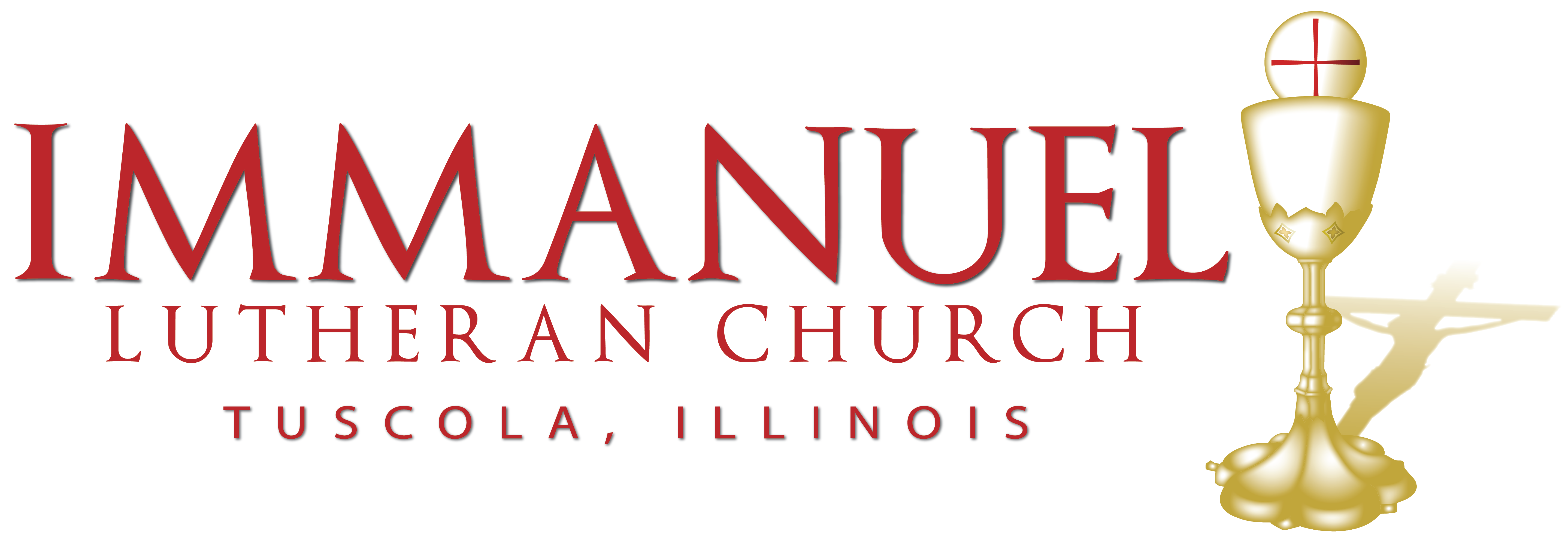Believe . . .
What is Christianity? Christianity is the life and salvation God has given in and through Jesus Christ.
- John 14:6
- John 17:3
- Acts 4:12
- Acts 11:26
- 1 John 5:11–12
Where is God’s truth about our Savior Jesus Christ made known? This truth is made known in the Bible: the Old Testament, which promises the coming Savior, and the New Testament, which tells of the Savior who has come.
- Hebrews 1:1–2
- Luke 24:27
- John 20:31
- Ephesians 2:20
- 1 John 1:1–2a
Why do we call the Bible the “Holy Scripture”? The Bible is the “Holy Scripture” because God the Holy Spirit gave to His chosen writers the thoughts that they expressed and the words that they wrote (verbal inspiration). Therefore, the Bible is God’s own Word and truth, without error (inerrancy).
- John 10:35
- Mark 8:38
- John 14:26
- Acts 24:14
- 2 Timothy 3:16–17
- 2 Peter 1:21
Belong . . .
Pray for one another (James 5:16)
- Alexander Family — Eric, Stephanie, Chloe, Avery
- Alexander Family — Jerry, Joyce
- Allen Family — Sharon
- Apperson Family — Heather
- Appleby Family — Jack, Mary, Nick
Pray for kings and those in authority (1 Timothy 2:2)
- Local — Mayor Daniel J. Kleiss
- State — Governor J. B. Pritzker
- National — President Joseph Biden
Pray for the Gospel to spread among all peoples (Matthew 9:37–38)
- Missionaries to Japan — Rev. and Mrs. Daniel Jastram
Become . . .
As children of God our Father and brothers of our Lord Jesus Christ, we want to become like our Father in heaven and our big brother in the faith. When called upon to accomplish our salvation, the Father held nothing back. He gave His Son so that we would not perish but have eternal life. And our Jesus, our Brother, gave of Himself to the full, even to the point of death, death upon a cross. We want to become in giving just as they gave.
Stewardship doesn’t have to be difficult. We often make it more difficult than it need be. The fundamentals of stewardship come from answering these basic questions: Who are you? To whom do I give? And how much? It’s that simple.
So who are you? Look at the Table of Duties in the Small Catechism. Are you a hearer of God’s Word? Are you a citizen of society? Are you a member of a family? Stewardship covers these three estates: church, society, family. We don’t particularly struggle to give to society or family. Our struggles, our difficulties and questions, arise in giving to the church.
So what are our stewardship duties as members of the church? The Table of Duties gives us a guide. If you are a hearer, a member of the church who receives instruction, St. Paul taught: “Anyone who receives instruction in the word must share all good things with his instructor” (Gal 6:6). This means that the local congregation is primary.
The primary recipient of stewardship resides here, even if you don’t particularly like your pastor or the other members of your congregation. Your pastor is the one called to preach the Gospel to you and administer the Lord’s blessed sacraments to you. Your congregation is the place where those things are given out. Therefore, we give to the local congregation to ensure that this continues. We don’t vote with our giving. We don’t let the pastor or the congregation know we are unhappy by how we give. Our Lord gives instructions in Matthew 18 for this. Thus, when God calls us to give to the church, He has the local congregation in mind. For “the Lord has commanded that those who preach the gospel should receive their living from the gospel” (1 Cor 9:14). “Do not be deceived: God cannot be mocked. A man reaps what he sows” (Gal 6:7). We don’t steal from Peter to give to Paul. All other gifts to para-church organizations are gravy; they are given on top of what we give to the local congregation.
How much do we give to the local congregation? Our only instructions are these: to give regularly (1 Cor 6:1–2), proportionally (1 Cor 16:1–2; 2 Cor 8:12), and generously (2 Cor 8:20) of our first fruits (Gen 4:4; Prov 3:9; Lev 27:30) with a spirit of eagerness (2 Cor 9:2), earnestness (2 Cor 8:7), cheefulness (2 Cor 9:7), and love (2 Cor 8:23).
In other words, giving to the church is not to be an afterthought, given after everything else is spent. In this way, it is deliberate. We give it regularly—weekly, bi-weekly, monthly, quarterly, or yearly—keeping in mind what our own strengths, weaknesses, and limitations are. We set it aside beforehand, before anything else is spent. From those first fruits, we set aside a proportionate and generous amount. Ten percent was the standard for the Israelites. Ten percent is an easy way to figure out an amount. You simply move your weekly, bi-weekly, bi-monthly, monthly, or yearly income one decimal point to the left. And that’s it. That’s what you put in the offering plate to support your local congregation so that you may continue to be a hearer of God’s word by sharing all good things with those who teach it to you.
And how are we to give it? We give it with eagerness and earnestness. We give it cheerfully and with love, not out of compulsion. For through the preaching of the gospel and the administration of the sacraments, God has made us His children, forgiven us all our sins, given us grace upon grace, promised us life everlasting with Him in His kingdom, and filled us with His own Spirit, the Holy Spirit. This makes giving a joy. For it is more blessed to give than to receive (Acts 20:35).
It’s that easy. And it is joyful. For in stewardship, our gracious and giving Lord invites us to take part in the work that He accomplishes here on earth, providing for the ongoing preaching of the gospel as well as those who are in need. Taking part in that, makes all our work holy work, work that is done in service to the Lord as priestly members of His kingdom.


 We BELIEVE that Jesus Christ purchased and won us from sin, death, and the devil with His own blood. Therefore, we BELONG to Him and in Him we belong to one another, so that we BECOME like Him as we mature in faith toward God and fervent love toward one another.
We BELIEVE that Jesus Christ purchased and won us from sin, death, and the devil with His own blood. Therefore, we BELONG to Him and in Him we belong to one another, so that we BECOME like Him as we mature in faith toward God and fervent love toward one another.
0 Comments